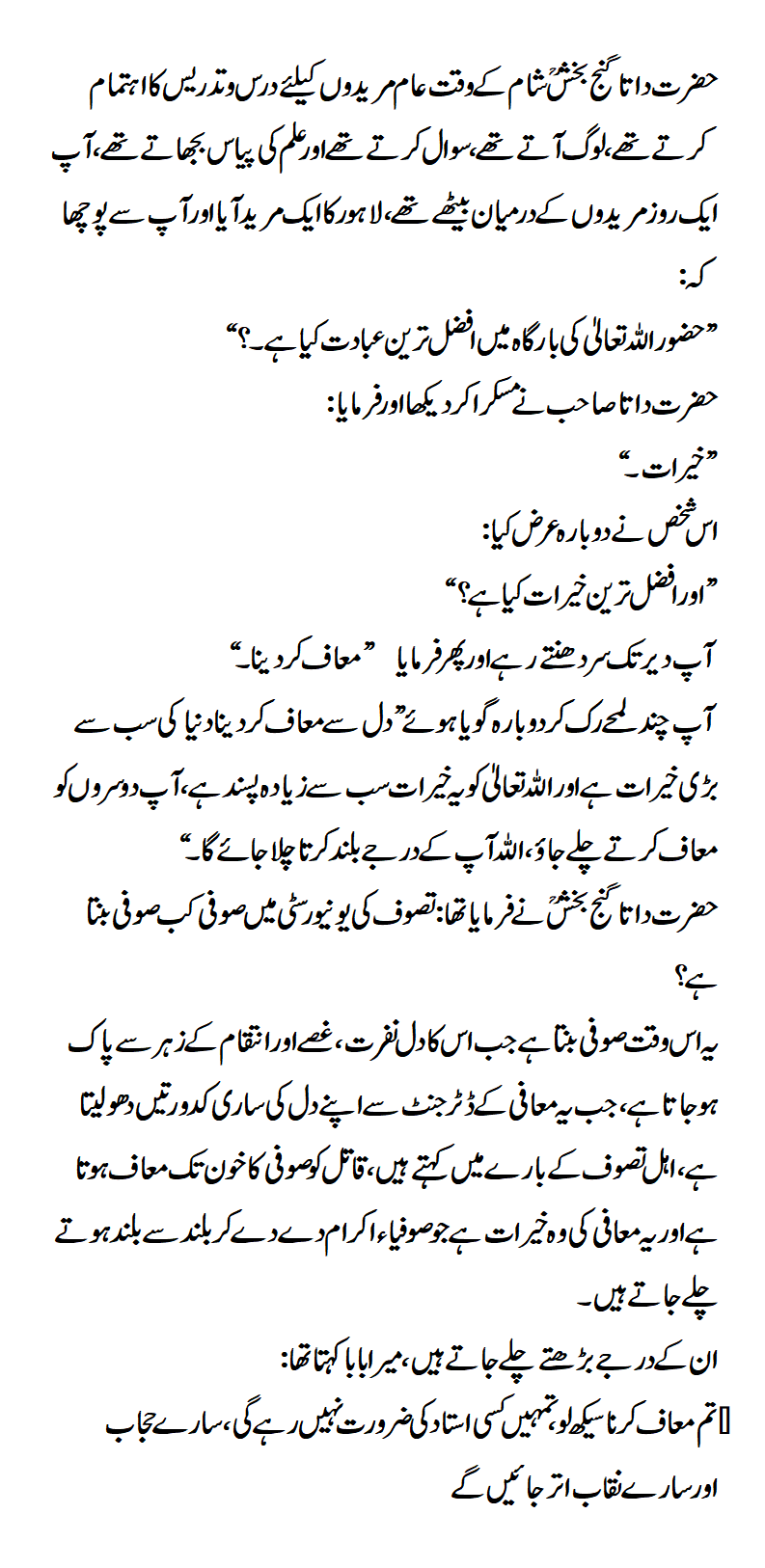ʿAlī ibn ʿUthmān al-Hujwīrī (c. 14 August 1009 – 8 August 1072), better known as ʿAlī Hujwīrī (or al-Hujwīrī) and reverentially as Dātā Ganj Bakhsh, was an 11th-century Persian Sunni Muslim mystic, theologian, and preacher.He is well-known for composing the Kashf al-Maḥjūb (lit. ’Revelation of the Hidden’), which is considered the earliest formal treatise on Sufism in Persian.
Belonging from Ghazna, Ali Hujwiri travelled throughout the Ghaznavid Empire, and preached across the Middle East. After living in Baghdad, he moved to Lahore and contributed significantly to the spread of Islam through his preaching.[5] He became a renowned Sufi saint in the region, and in his last years, Ali Hujwiri compiled the Kashf al-Mahjub. In 1072, Hujwiri died in Lahore and was buried in the same city.
Ali Hujwiri is venerated as the main wali of Lahore, Pakistan by the traditional Sunni Muslims of the area.He is, moreover, one of the most widely venerated saints in the entire South Asia.Hujwiri’s burial site, known as the Data Darbar, became a significant pilgrimage site for Sufi devotees and is one of the most frequented shrines in South Asia. At present,
it is Pakistan’s largest shrine “in numbers of annual visitors and in the size of the shrine complex,”and, having been nationalized in 1960, is managed today by the Department of Awqaf and Religious Affairs of the Punjab.The mystic himself remains a
“household name” in the daily Islam of South Asia.In 2016, the Government of Pakistan declared 21 November to be a public holiday for the commemoration of the commencement of Ali Hujwiri’s three-day death anniversary. One historian describes him as “one of the most important figures to have spread Islam in the Indian subcontinent.
